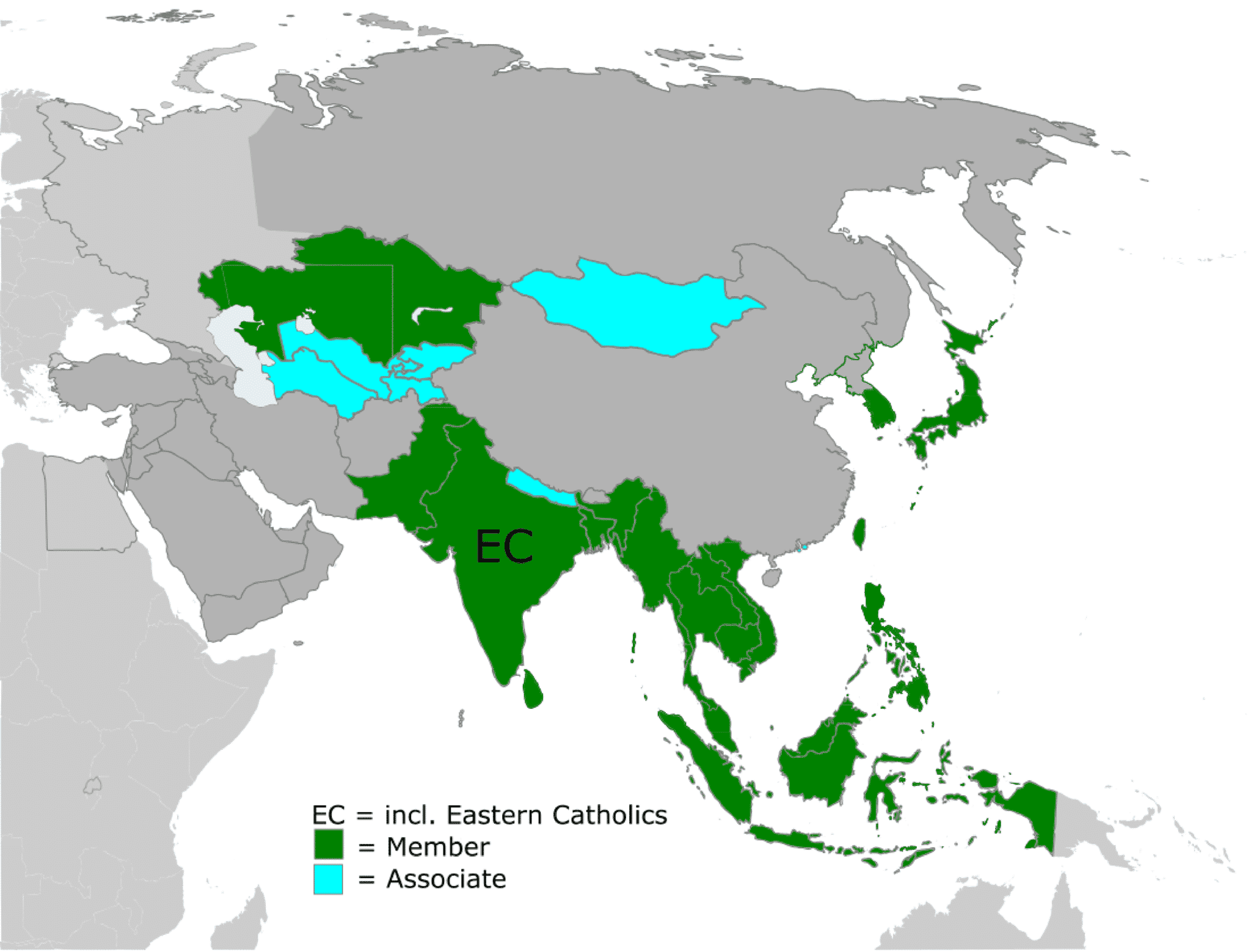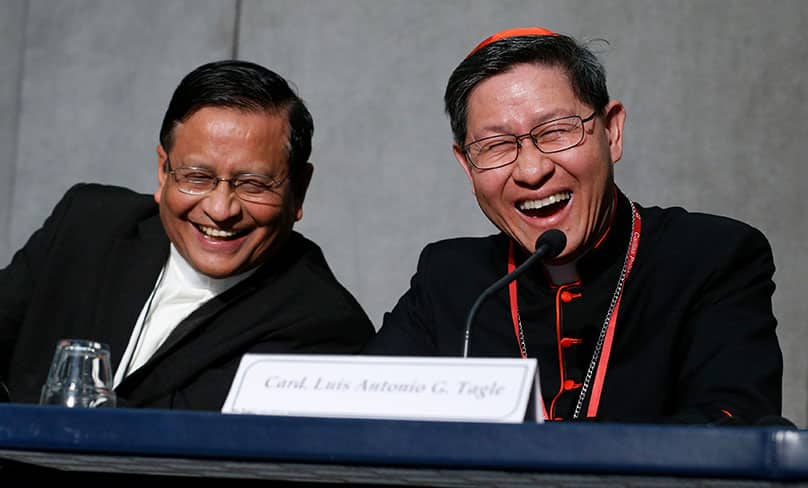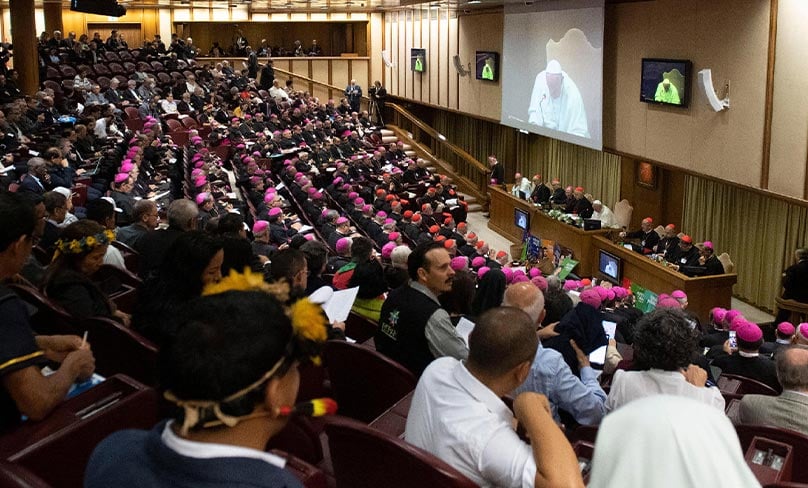
The continental stage of the synod on synodality is now in action with the release of its working document, but the Church in Asia is already reforming itself around synodal principles.
The Federation of Asian Bishops’ Conferences (FABC) met in conference this week in Bangkok for their 50th anniversary, drawing their theme from the story of the three Magi in the Gospel of Matthew: “Having been warned in a dream not to go back to Herod, they went a different way” (Mt 2:12).
For the Church in Asia, what does this different way mean? In his inaugural address to the conference, Cardinal Oswald Gracias of Mumbai said that participants had been keeping a close eye on Latin America – especially a key document from 2007, called Aparecida.
The document, which concluded the 2006 Brazilian meeting of CELAM, the Federation of Latin American Bishops’ Conferences, was authored chiefly by then-Cardinal Jorge Bergoglio, now Pope Francis. He has since referenced it extensively.
“it is important for the Regional Conferences to meet with some consistency, as in doing so the Church … is strengthened along the way.”
The Aparecida/CELAM model, in which a more organised continental Episcopal Conference actively adapts the Church’s teaching to its local context, seems to have Pope Francis’ blessing for Asia.
In his message to the conference, the Holy Father said “it is important for the Regional Conferences to meet with some consistency, as in doing so the Church is formed, is strengthened along the way”.
“Let the singularity of each one be respected, because the universal Church is not the uniform Church, no: she is universal, with respect for the particularity of every Church.”

Cardinal Luis Tagle, until recently Archbishop of Manila and now a pro-prefect at the Dicastery for Evangelisation, was sent as Papal Envoy to the conference.
Cardinal Gracias put the influence of Aparecida and CELAM front and centre in his address:
“The question, therefore, arises: isn’t it time for the FABC to have something similar in Asia? What helped South America can surely help Asia,” he said.
“Would such a Conference not help our Churches in Asia to renew and revitalise our pastoral thrust so that the Church could become what the Lord calls her to be? A vibrant Church working for a better Asia.”
“It condemns a “negative globalisation” that has left Latin America marginalised, and instead promotes a “different globalisation.”
Aparecida addresses everything from economics to migration, all within the context of the Church in the developing world.
It condemns a “negative globalisation” that has left Latin America marginalised, and instead promotes a “different globalisation, one characterised by solidarity, justice, and respect for human rights”.
In Latin America this means respecting Indigenous wisdom and popular spirituality, and confronting the concrete pastoral situations of those on the margins – Afro-Americans, Indigenous people, those living in abject poverty and lacking priests. All are major themes in Pope Francis’ thinking on synodality.

Aparecida likewise corrected the Marxist-inflected “liberation theology” that was highly-influential in the Latin American Church, but did not abandon critiques of “an evil economic system” that prevents “authentic liberation” from being achieved.
In all, it is a thoroughly missionary, rather than contemplative, document. “We cannot passively and calmly wait in our church buildings, but we must move out in all directions to proclaim that evil and death do not have the last word,” Aparecida concludes.
Its influence can be seen in the Amazon Synod of 2019 a decade later.
The final message of the FABC conference to the people of Asia shows this influence clearly, drawing on “the different voices of our multifaceted continent that we hear crying out for help and justice” and committing to a “pastoral and ecological conversion to positively respond to ‘both the cry of the earth and the cry of the poor.’”
“Alongside the working document of the continental stage, and with two more years of the Synod on Synodality ahead, the FACB conference could be seen as another test case for synodality.”
Two important Australian connections were present at the FABC conference. FABC President Cardinal Charles Maung Bo was an observer at the Second Assembly of our Plenary Council, and would have taken in more than the lavish interior of St Mary’s Cathedral College’s gymnasium.
Prof Susan Pascoe AM, a prominent figure during the Plenary Council process and member of the continental stage drafting commitee, spoke at the FABC conference to link it explicitly with what is happening in Rome.
Alongside the working document of the continental stage, and with two more years of the Synod on Synodality ahead, the FACB conference could be seen as another test case for synodality: a decentralised Church based on strong regional and continental bishops conferences, which adapt Church teaching to local pastoral situations, embracing Indigenous and popular spirituality.
A Church in the “vernacular” – not just linguistically, but theologically too.
